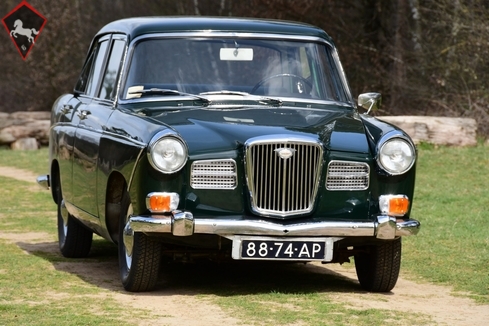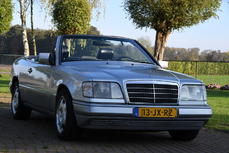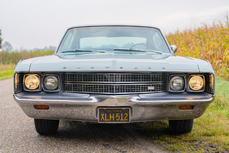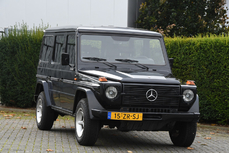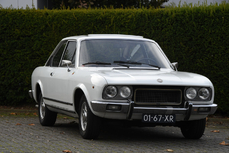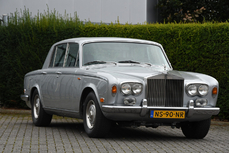Wolseley 15/60 16/60 /60 Saloon Automatic 1966
General description :
1966 Wolseley 16/60 Saloon Automatic This very stylish Wolseley 16/60 is an original Dutch delivery, also LHD. It still has the original 1966 plates and looks great in British Racing green. The green leather is still the original and in good condition, lovely. Drives well with automatic transmission, not a racing car but nice. Shiny paint, very nice chrome, original wood , just a great survivor. Very British and a great car to enjoy or to collect, you cannot go wrong!
Additional : Chrome bumpers : European edition : Low miles
Licence : Dutch registration
Road tax : Road tax: taxfree in Netherlands
Body : Sedan
Doors : 4 doors
Condition : The car is in very good and original condition
Maintenance : Very-well maintained
Cylinders : Engine: 4 cylinders
Cylinders : 1600 cc
Fuel : Petrol
Interior : Leather
Paintwork : Paint of the car is very good
Transmission : Automatic
https://www.stuurmanclassiccars.com/collection/wolseley-16-60-saloon-automatic-641/
1966 Wolseley 15/60 16/60 /60 Saloon Automatic is listed sold on ClassicDigest in Herkenbosch by Stuurman Classic Cars for €8950.
Car Facts
Car type : Car Make : Wolseley Model : 15/60 16/60 Model Version : /60 Saloon Automatic Engine size : 0.0 Model Year : 1966 Sub type : Sedan Location : The Netherlands
Sold
Seller Information
Sold
Other cars listed for sale by this dealer
About Wolseley
The Wolseley Company has a rich history in the automotive industry, known for producing quality vehicles and eventually becoming part of badge engineering initiatives. Here's an overview of Wolseley's story:Early Years:
Founding: The Wolseley Company was founded by Herbert Austin in 1901. Initially, it specialized in manufacturing bicycles before transitioning into automobile production.
Innovations: Wolseley was known for its engineering innovations, producing cars with notable advancements for their time, including the first British car to have a fully enclosed body.
Growth and Success:
Expansion: Wolseley expanded rapidly during the early 20th century, gaining a reputation for quality and reliability. Their cars were popular among the upper-middle class and gained recognition in various international markets.
Motorsport Success: Wolseley had success in motorsport events, further enhancing its reputation for performance and reliability.
Badge Engineering:
BMC Merger: In the mid-20th century, Wolseley became part of the British Motor Corporation (BMC), which led to the concept of badge engineering—producing different models under various brand names within the same company.
Wolseley Mini:
Mini Variants: As part of the BMC, Wolseley released its version of the classic Mini, known as the Wolseley Hornet and the more luxurious Wolseley Elf.
Distinctive Design: The Wolseley Mini variants had a more upscale appearance compared to the standard Mini, featuring additional chrome trim, a different grille, and a more refined interior.
Later Years and Decline:
Integration into British Leyland: In 1968, BMC merged with Leyland Motors to form British Leyland. Wolseley cars were still produced, but the brand lost some of its distinctiveness due to shared platforms and components among various badge-engineered models within British Leyland.
Decline: Over time, the Wolseley brand lost its individual identity as badge engineering became more prevalent within British Leyland. The company faced challenges due to quality control issues, labor disputes, and market changes.
Legacy:
Contributions: Wolseley made significant contributions to the automotive industry, especially in the early 20th century, with its innovative designs and quality vehicles.
Badge Engineering Era: While the Wolseley Mini variants added a touch of elegance to the classic Mini design, the brand's significance diminished as it became part of the larger badge-engineered product line within British Leyland.
The Wolseley nameplate eventually disappeared in the 1970s as British Leyland rationalized its brands, and the company shifted focus towards other marques within its portfolio. Despite its decline, Wolseley remains a part of automotive history for its contributions and its role within the badge engineering initiatives of British Leyland.
